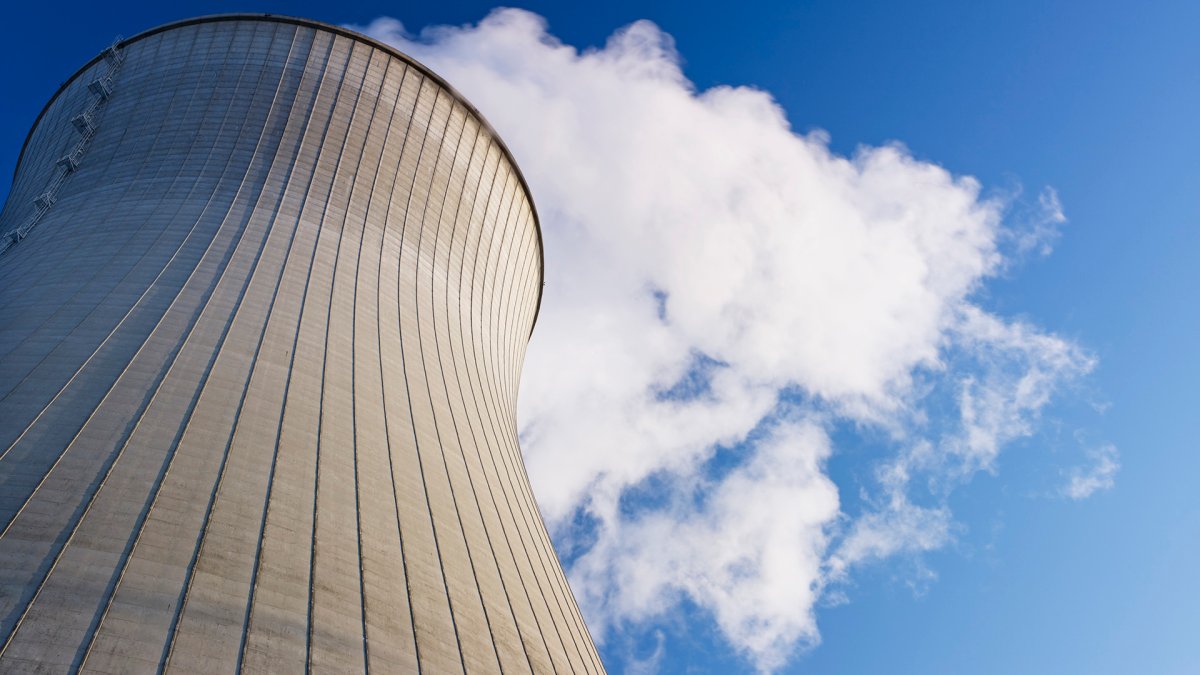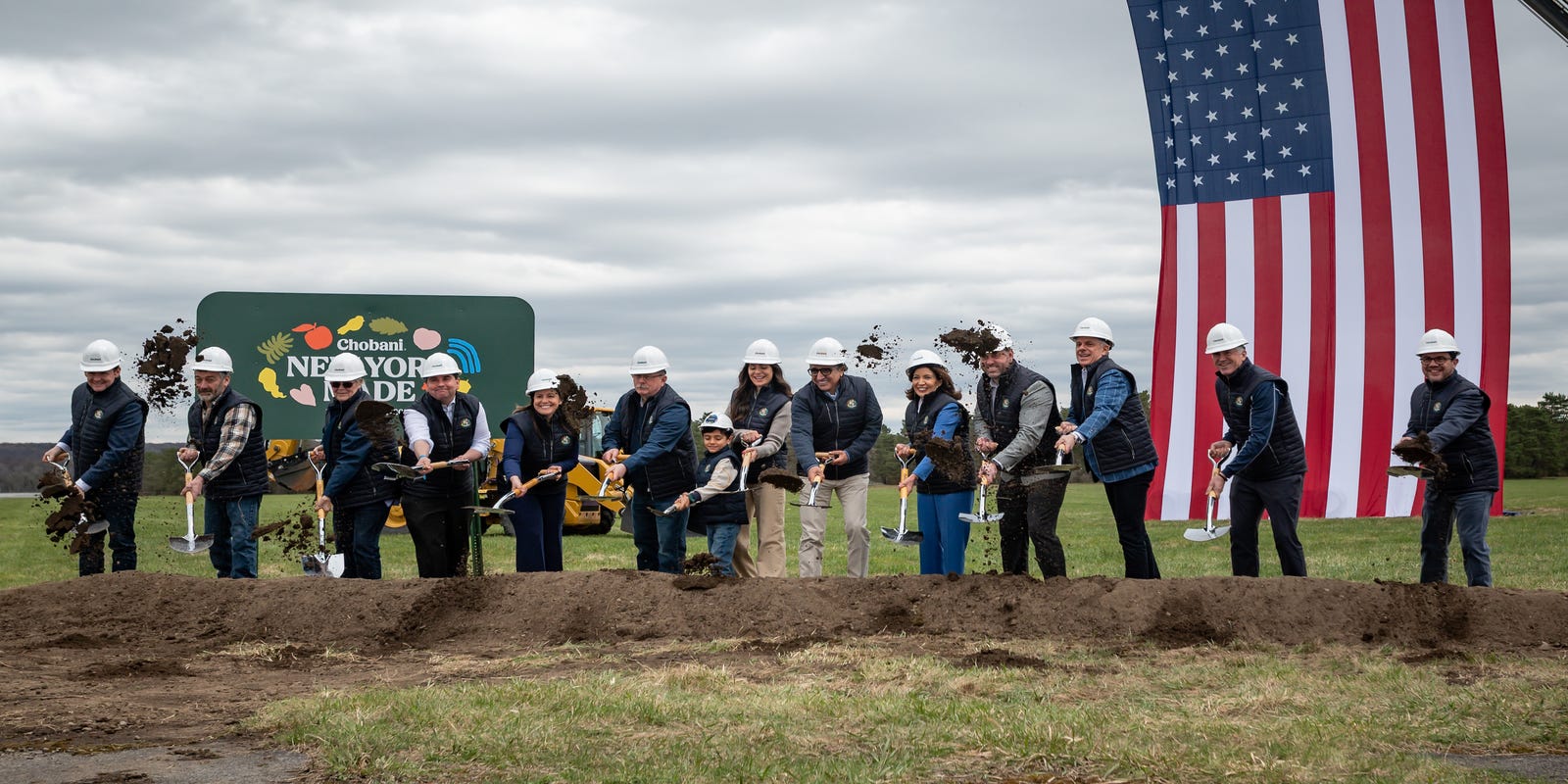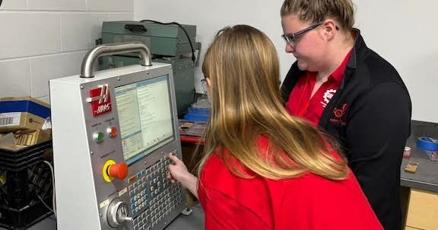Nuclear Power Meets Manufacturing: Dow's Bold Texas Energy Revolution
Manufacturing
2025-03-31 21:56:26Content

In a bold move towards sustainable manufacturing, Dow is pioneering an innovative approach to clean energy by planning to replace traditional natural gas with cutting-edge nuclear reactors at its Texas industrial complex. The chemical giant is set to leverage next-generation nuclear technology to generate both electricity and process steam, marking a significant step towards decarbonizing industrial operations.
This groundbreaking initiative demonstrates Dow's commitment to reducing carbon emissions while maintaining high-efficiency industrial processes. By embracing advanced nuclear technology, the company aims to create a more sustainable future for manufacturing, showcasing how innovative energy solutions can transform industrial power generation.
The project represents a strategic shift in industrial energy production, highlighting the potential of nuclear technology to provide reliable, clean energy for complex manufacturing environments. Dow's forward-thinking approach could potentially serve as a model for other industrial companies seeking to reduce their carbon footprint and embrace more sustainable energy solutions.
As the world continues to search for effective ways to combat climate change, Dow's nuclear reactor project stands out as a promising example of how industrial innovation can drive meaningful environmental progress.
Nuclear Revolution: Dow's Bold Leap into Next-Generation Clean Energy Manufacturing
In an era of escalating environmental challenges and increasing industrial energy demands, corporations are pioneering transformative solutions that challenge traditional power generation paradigms. The chemical manufacturing landscape stands on the cusp of a technological revolution, with innovative approaches promising to redefine sustainable industrial infrastructure.Powering Tomorrow: A Groundbreaking Strategy for Industrial Decarbonization
The Nuclear Transition: Reimagining Industrial Energy Infrastructure
The chemical manufacturing sector is experiencing a profound technological metamorphosis, with Dow Chemical Company emerging as a trailblazer in sustainable energy transformation. By strategically replacing conventional natural gas infrastructure with advanced nuclear reactor technologies, the company is positioning itself at the forefront of industrial decarbonization efforts. This paradigm-shifting approach represents more than a mere energy substitution; it signifies a comprehensive reimagining of industrial power generation methodologies. Advanced nuclear technologies offer unprecedented opportunities for clean, reliable, and scalable energy production. Unlike traditional fossil fuel-based systems, these next-generation reactors promise significantly reduced carbon emissions, enhanced operational efficiency, and greater technological resilience. The potential implications extend far beyond a single manufacturing complex, potentially establishing a blueprint for widespread industrial energy transformation.Technological Innovation and Environmental Stewardship
Dow's strategic initiative represents a sophisticated intersection of technological innovation and environmental stewardship. By leveraging next-generation nuclear reactors, the company demonstrates a commitment to reducing its carbon footprint while maintaining robust industrial capabilities. These advanced reactor designs incorporate cutting-edge safety mechanisms, enhanced thermal efficiency, and modular construction principles that dramatically reduce implementation complexity and operational risks. The Texas manufacturing complex serves as a critical proving ground for this revolutionary approach. By integrating advanced nuclear technologies directly into existing industrial infrastructure, Dow is effectively challenging conventional wisdom about industrial energy generation. This approach not only promises substantial carbon emission reductions but also establishes a potential template for other manufacturing entities seeking sustainable energy solutions.Economic and Environmental Implications
The economic ramifications of this technological transition are profound and multifaceted. Advanced nuclear reactors offer long-term cost stability, reduced operational expenses, and enhanced energy security. Unlike volatile fossil fuel markets, nuclear energy provides predictable, consistent power generation with minimal price fluctuations. Moreover, the reduced environmental impact translates into potential carbon credit opportunities and enhanced corporate sustainability credentials. From a broader perspective, Dow's initiative signals a critical moment in industrial energy evolution. By demonstrating the feasibility of integrating advanced nuclear technologies into existing manufacturing ecosystems, the company is effectively challenging traditional energy paradigms. This approach could catalyze widespread industrial adoption of cleaner, more efficient energy generation methodologies.Technological Resilience and Future Preparedness
The selection of next-generation nuclear reactors reflects a strategic commitment to technological resilience and future preparedness. These advanced systems represent a quantum leap beyond traditional nuclear technologies, incorporating enhanced safety features, improved thermal efficiency, and modular design principles. By embracing these innovations, Dow positions itself as a forward-thinking organization capable of navigating complex technological and environmental challenges. The Texas manufacturing complex will serve as a critical test case, potentially influencing industrial energy strategies worldwide. The successful implementation of this approach could accelerate the global transition towards more sustainable, technologically sophisticated energy generation methodologies.RELATED NEWS
Manufacturing

Texas Expansion: LiquidStack Doubles Down on Cooling Tech with New Manufacturing Hub
2025-03-25 16:00:40
Manufacturing

Chobani Expands Local Footprint: State-of-the-Art Yogurt Plant Breaks Ground in Rome
2025-04-22 20:28:06






